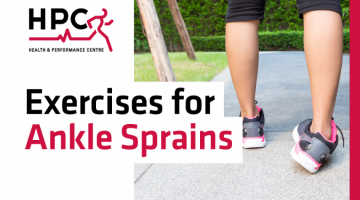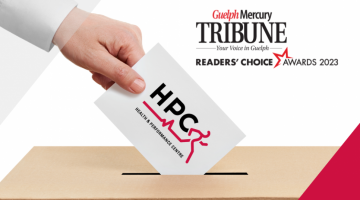What is Intramuscular Stimulation (IMS)? | Physiotherapy Guelph

*About the HPC Student Volunteer Program*
Each year, approximately 30 University of Guelph students are selected following a competitive application process to take part in the “HPC Volunteer Program.” This program provides an opportunity for U of G student volunteers to translate their academic knowledge into practice, while gaining first-hand experience and mentorship from the team of certified physiotherapists and chiropractors at the University of Guelph’s Health and Performance Centre. As a result of this exceptional partnership between the University of Guelph and the HPC practitioners, students can gain valuable insight on evidence-based practice prior to graduating from their respective programs. Click here for more information on co-curricular experiential learning opportunities at the University of Guelph. The following article was written by members of the 2020-21 HPC Student Volunteer Program.
Prepared by Stella Nichols and Bryan Crawford
Intramuscular Stimulation (IMS)/Dry Needling Overview:
Intramuscular Stimulation (IMS), also known as “Dry Needling”, is a medical technique used to reduce muscle pain. It works by increasing blood flow, and pain-relieving hormone release, to the affected area. IMS is an effective and low risk treatment option, shown to relieve pain quickly!
How Does Intramuscular Stimulation (IMS)/Dry Needling Work To Treat Injuries?
Intramuscular Stimulation (IMS)/Dry Needling treatment begins with the insertion of acupuncture needles into trigger points of muscle pain. The needle creates tiny therapeutic injury, causing the muscle to grab onto the needle and cramp. This stimulation triggers the endogenous hormone release of opioids, serotonin, and norepinephrine. The small wound also increases blood supply to the affected area, relaxing the muscle and signalling the body to heal.
What can Intramuscular Stimulation (IMS)/Dry Needling Be Used to Treat?
- Tension-related headaches and migraines
- Muscle and tendon pain
- Tennis elbow
- Plantar fasciitis and carpal tunnel
- Muscle tightness
- Tendonitis
- Impaired range of motion
If you are experiencing any of these symptoms, seeking help from a Guelph physiotherapist may be beneficial. Our staff at HPC may be able to help by developing and working through a personalized treatment plan that promotes optimal healing. When working with a physiotherapist, some things to expect may include; a range of motion assessment, electrical stimulation, balance activities, and stretches and exercises. The physiotherapist will likely teach you various stretches and exercises to do at home that will further promote recovery.



